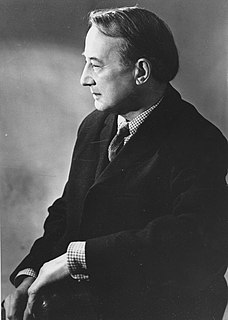A Quote by Edward Gibbon
The pains and pleasures of the body, howsoever important to ourselves, are an indelicate subject of conversation
Related Quotes
Do you, like a skilful weigher, put into the balance the pleasures and the pains, near and distant, and weigh them, and then say which outweighs the other? If you weigh pleasures against pleasures, you of course take the more and greater; or if you weigh pains against pains, then you choose that course of action in which the painful is exceeded by the pleasant, whether the distant by the near or the near by the distant; and you avoid that course of action in which the pleasant is exceeded by the painful.
We are not born all at once, but by bits. The body first, and the spirit later; and the birth and growth of the spirit, in those who are attentive to their own inner life, are slow and exceedingly painful. Our mothers are racked with the pains of our physical birth; we ourselves suffer the longer pains of our spiritual growth.
This, I believe, is the appropriate image of human intercourse -- appropriate because it recognizes the qualities, the diversities, and the proper relationships of human utterances. As civilized human beings, we are the inheritors, neither of an inquiry about ourselves and the world, nor of an accumulating body of information, but of a conversation, begun in the primeval forests and extended and made more articulate in the course of centuries. It is a conversation which goes on both in public and within each of ourselves.
Approaching subject matter to photograph is like meeting a person and beginning a conversation. How does one know ahead of time where that will lead, what the subject matter will be, how intimate it will become, how long the potential relationship will last? Certainly, a sense of curiosity and a willingness to be patient to allow the subject matter to reveal itself are important elements in this process.
We can either have a twenty-first-century conversation about morality and the human well-being - a conversation in which we avail ourselves of all scientific insights and philosophical arguments that have accumulated in the last two thousand years of human discourse - or we can confine ourselves to a first-century conversation as it is preserved in the Bible.




































